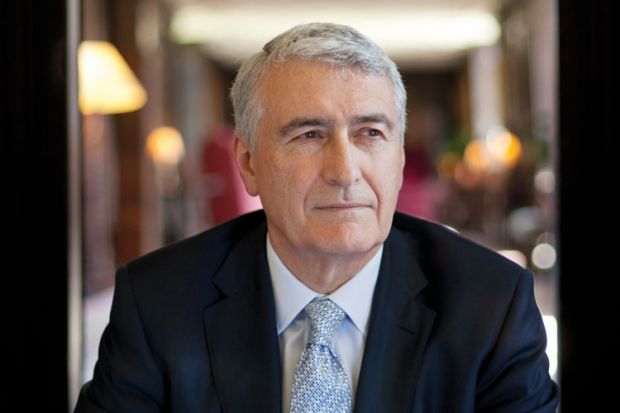Source: Olivier Hess
Lord Eatwell is an economist and academic and served as chief economic adviser to Neil Kinnock, the former leader of the Labour Party, from 1985 to 1992. In May, he was confirmed as the new chair to the advisory board of the Institute for Policy Research at the University of Bath. He is also president of Queens’ College, Cambridge.
Where and when were you born?
I was adopted in Swindon in 1945.
How has this shaped you?
Being adopted by two wonderful people has given me a permanent feeling of being lucky.
Do policymakers use academics enough when formulating policy?
It’s mutual: policymakers don’t use enough academic insight and research, and academics don’t present their research in a manner that provides policymakers with the answers they need.
In what areas of public policy do you think decision-makers should be asking advice from academics as a matter of course?
In all areas: take, for example, the valuable role of scientific advice in the Foreign Office.
Which policymakers would you like to see come to Bath? Are you shooting as high as George Osborne or other members of the Cabinet?
Senior government figures seldom have time for serious reflection. We hope to attract senior civil servants, special advisers, senior opposition politicians and perhaps the occasional Cabinet minister. But first we have the task of developing a programme that doesn’t bring problems but brings solutions.
High-powered UK politicians have often studied PPE or related subjects; do you think there should be more of a balance of MPs who have science or humanities degrees, or do you think this already exists?
It’s not surprising that politicians are interested in politics. But a few more well-trained scientists in politics would be a boon.
How damaging/beneficial have the austerity measures imposed by the current government been to the country?
The UK has missed a golden opportunity for major infrastructure modernisation that could have been funded at negative real interest rates.
Do you think university economics courses should reflect contemporary issues, such as the state of economies after the financial crisis?
Economics should provide answers to economic problems faced at home and abroad. The subject is meant to be useful.
What was your university experience like?
I was incredibly lucky: an undergraduate at Queens’ College, Cambridge and a graduate student at Harvard – both of them inspiring and empowering institutions.
What kind of undergraduate were you?
I really enjoyed the work, primarily because of inspiring teaching by my supervisor, Ajit Singh, and the lectures of Joan Robinson.
What’s your most memorable moment at university?
Stepping on to a rugby pitch in the same team as the great Mike Gibson (Ireland and Lions – and Queens’ College!).
The 1992 election was widely predicted to result in a Labour Party victory. In your opinion, what went wrong?
Not enough of the electorate trusted the Labour Party.
What has changed most in higher education in the past 10 years?
The increasing prevalence of the view that teaching is an intrusion on research time. This is very bad for both teaching and research.
If you were a prospective university student now facing £9,000 fees, would you go again or go straight into work?
I came from a working-class family (my father was a carpenter) and the fees would have been terrifying. But my mother would never have allowed me to miss out on university.
Tell us about someone you’ve always admired.
The ballet dancer Sylvie Guillem – wilful, creative, difficult and the greatest dancer of her generation.
Have you ever had a eureka moment?
Yes – the best idea I’ve had on financial regulation came in the middle of a lecture, and to the puzzlement of the students I just stopped speaking for a couple of minutes.
As a child, what did you want to do when you grew up?
To drive a steam train on the Great Western Railway (I was, and am, a great admirer of Isambard Kingdom Brunel).
Tell us something we don’t know about Neil Kinnock.
He’s a frighteningly fast but very skilful driver.
Register to continue
Why register?
- Registration is free and only takes a moment
- Once registered, you can read 3 articles a month
- Sign up for our newsletter
Subscribe
Or subscribe for unlimited access to:
- Unlimited access to news, views, insights & reviews
- Digital editions
- Digital access to THE’s university and college rankings analysis
Already registered or a current subscriber? Login

